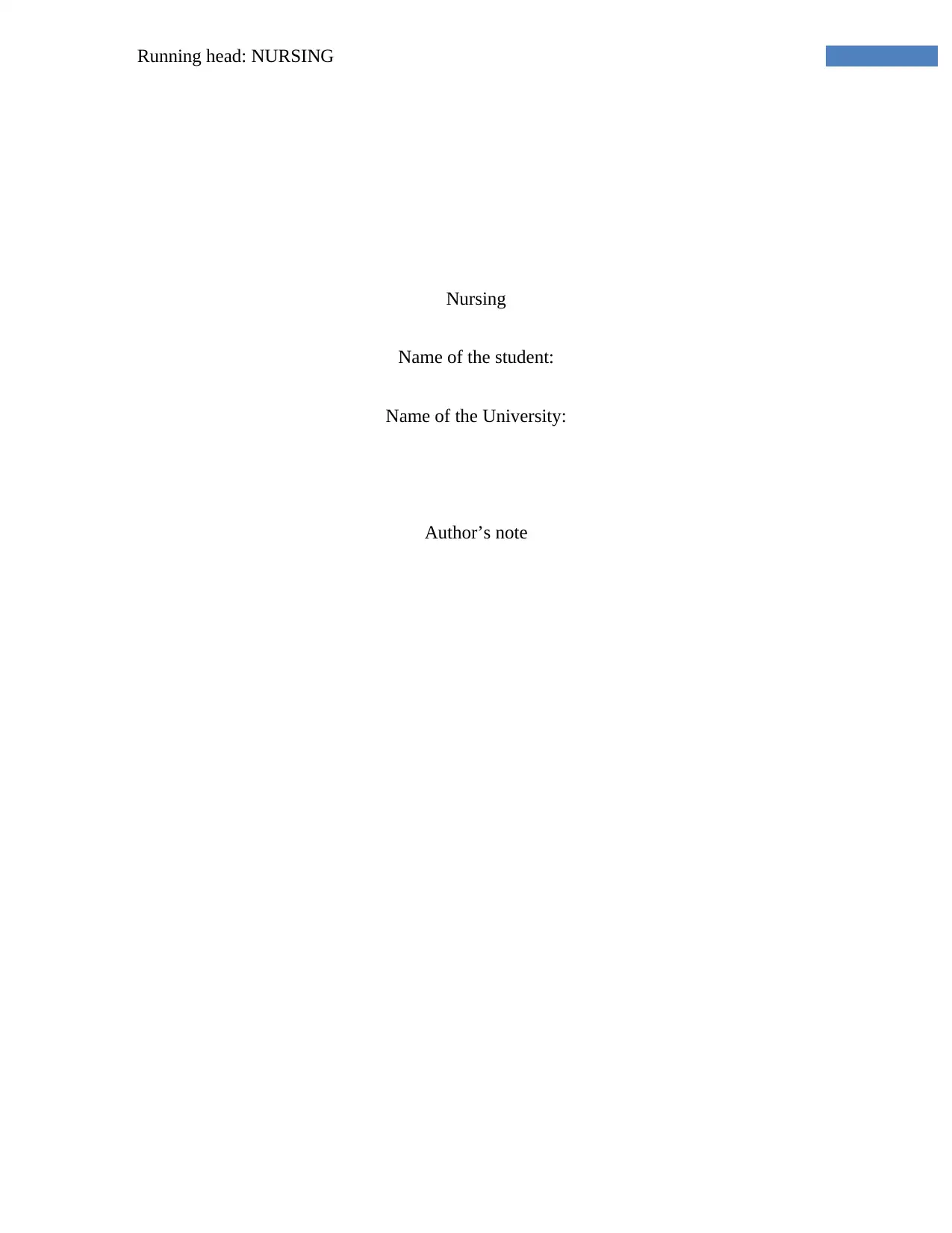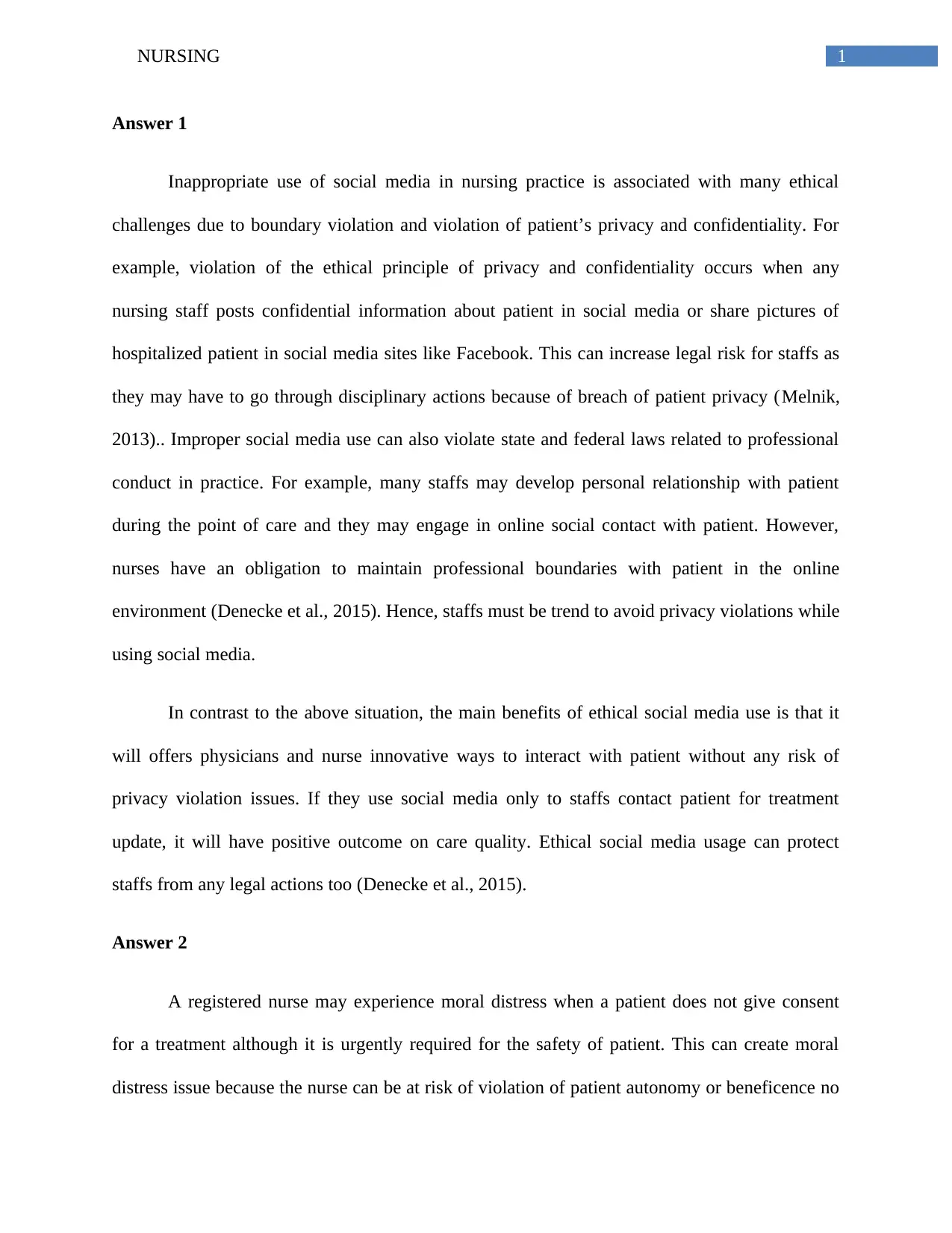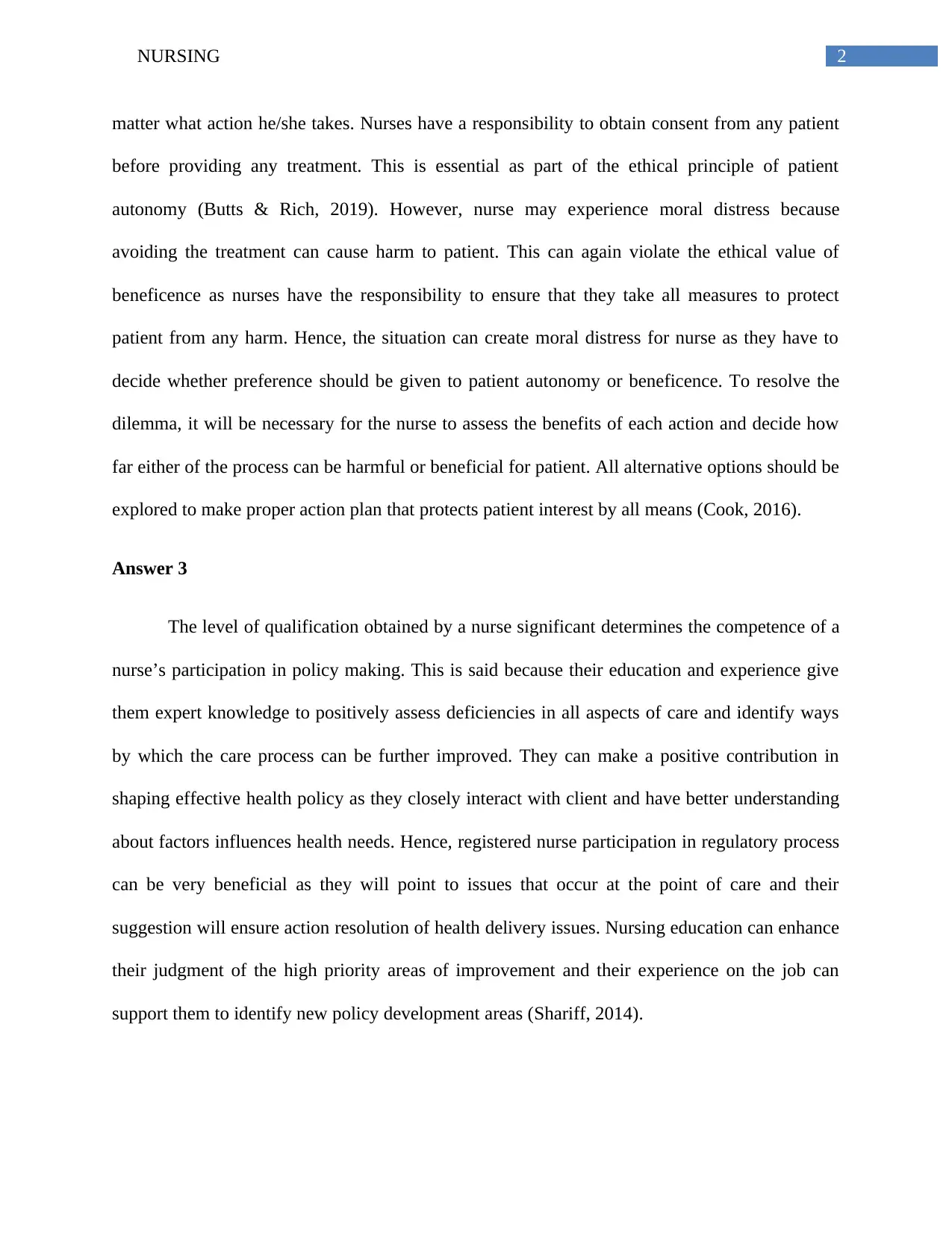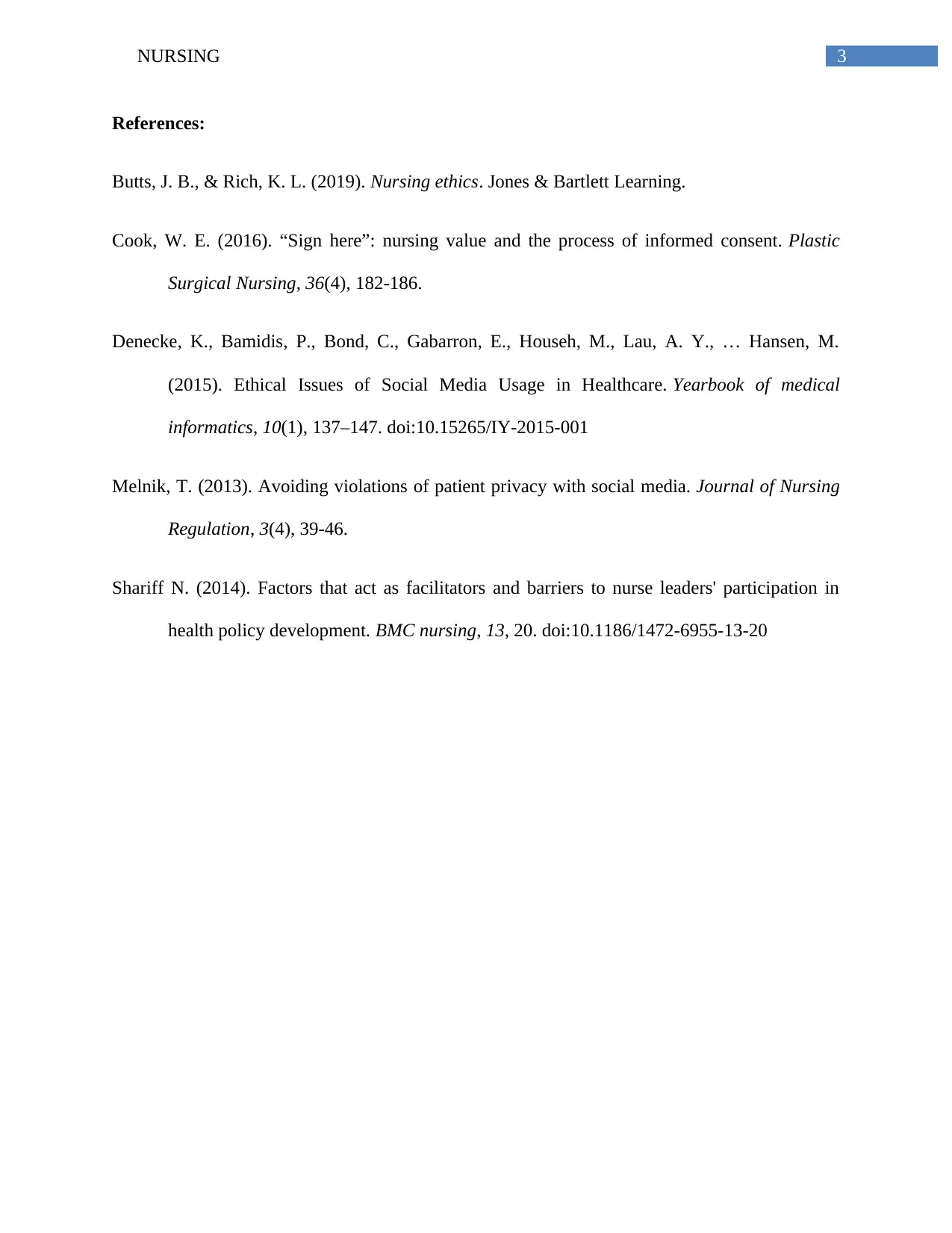NURSING Assignment: Ethical Dilemmas, Moral Distress, Policy
VerifiedAdded on 2022/09/07
|4
|830
|27
Homework Assignment
AI Summary
This assignment addresses three key areas within nursing practice. Firstly, it explores how social media use can violate ethical principles, such as patient privacy and confidentiality, and contrasts these violations with the potential benefits of ethical social media usage for patient interaction and care quality, emphasizing the importance of professional boundaries. Secondly, it presents a clinical scenario where a registered nurse experiences moral distress due to conflicting ethical principles like patient autonomy and beneficence when a patient refuses a necessary treatment; the assignment requires the application of the AACN's Four A's framework (Ask, Affirm, Assess, Act) to analyze the situation and propose mitigation strategies. Finally, the assignment examines the impact of a nurse's educational level on their competence and influence in policy making, highlighting the value of nurses' experience and knowledge in shaping effective health policies and contributing to regulatory processes.
1 out of 4










![[object Object]](/_next/static/media/star-bottom.7253800d.svg)